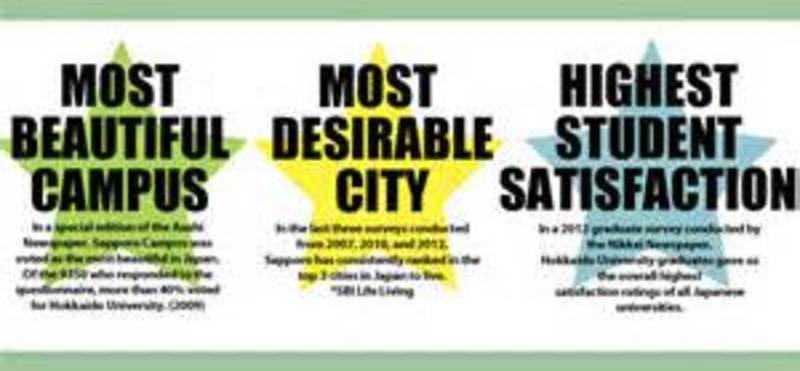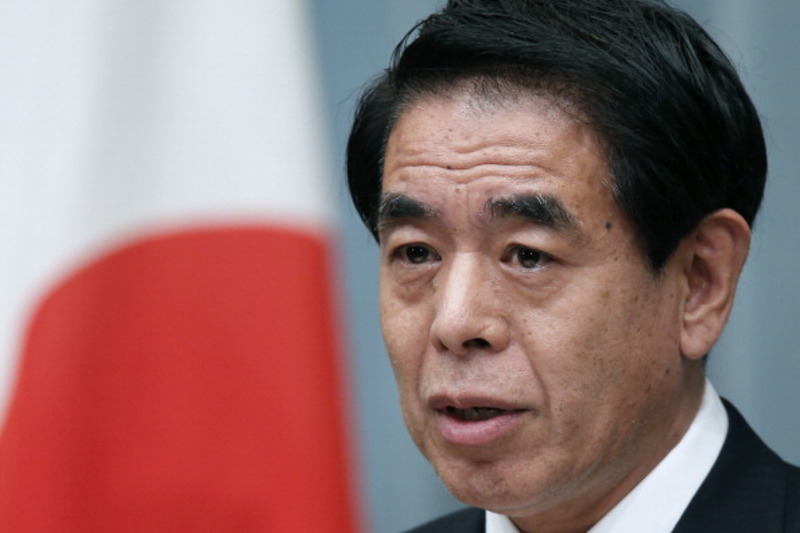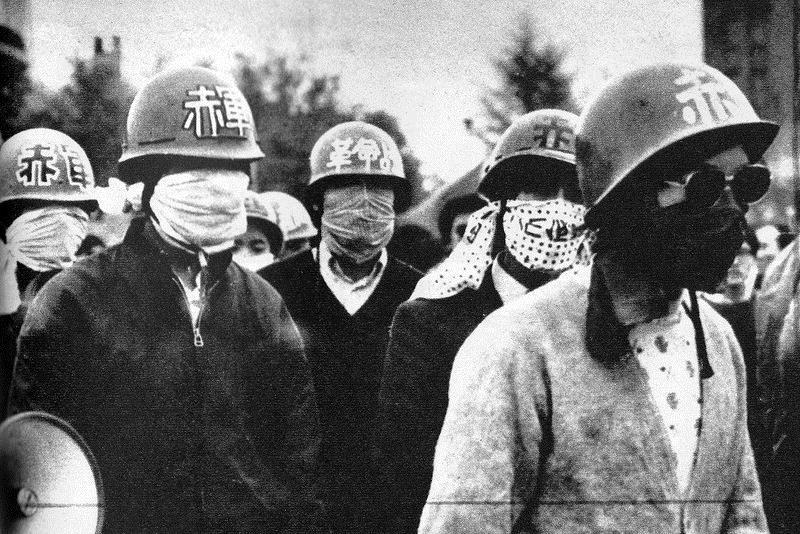Japanese University Humanities and Social Sciences Programs Under Attack
On June 8 the Ministry of Education, Culture, Sports, Science and Technology (MEXT) sent a ten-page directive to all 86 national universities in Japan, apparently calling on them, inter alia, to abolish or reorganize their humanities and social sciences (HSS) departments.1 I use the word “apparently” because the wording of the letter is ambiguous. A former Ministry of Education official’s Facebook posting in September is quoted on the European Association of Japanese Studies online forum asserting that the directive has been misinterpreted. The post refers to an article in Japanese by Kan Suzuki, Special Advisor to Japan's education minister. Kan acknowledges that MEXT failed to consult various stakeholders and that the new policy was not properly presented, but insists that the ministry is not moving to abolish HSS. Rather, he says, MEXT wants the national universities to concentrate on what they do best and develop survival strategies based on demographic trends.
Not withstanding Kan's demurral, the Yomiuri reports that 26 of 60 public universities operating HSS departments have agreed to stop accepting students into these programs or reduce relevant electives. Nevertheless, how far reaching this compliance will be remains unclear. What is clear is that prominent national universities, including the elite University of Tokyo and Kyoto University, are not shutting down HSS, demonstrating that powerful institutions with access to sufficient funding and no shortage of applicants are not beholden to MEXT.
Various organizations in Japan have also issued statements critical of MEXT’s initiative, including Keidanren, the big business lobby, so if indeed there is a misunderstanding about MEXT’s intentions, it is fairly widespread. This directive has also incited a chorus of criticism in the international press, including The Wall Street Journal, Forbes, Times Higher Education, Time, Bloomberg, and Japan Times, prompting a petition campaign among European scholars keen to protect HSS. Overseas researchers are alarmed that this hollowing out of higher education will adversely affect their research in Japan and stifle intellectual inquiry about subjects the rest of the world still highly esteems and deems essential for a well-rounded education. Numerous postings on NBR, an Internet discussion forum on Japan, have also criticized both the directive and the quality of education provided by Japan’s universities.

Japanese government officials are concerned that Japans universities don’t come out well in international rankings and apparently believe that focusing on STEM (Science, Technology, Engineering and Math) is the fastest way to catapult more universities into the top 100 world rankings. There are good reasons to doubt whether these world rankings are in fact a reliable and objective measure of education, learning outcomes and research output, especially given the bias in favor of Anglophone institutions, but Japanese officialdom’s obsession with such rankings renders them a powerful pretext for reforms. Can Japan really launch more of its universities into the top 100 world rankings by gutting the study of subjects that constitute the core of what universities embody?
The QS World University Rankings for 2015/16 rank five Japanese universities in the top 100: Kyoto University (38), University of Tokyo (39), Tokyo Institute of Technology (56), Osaka University (58) and Tohoku University (74).4This relatively poor showing—with tiny Singapore boasting two universities in the top 15, while China and Hong Kong each have four in the top 100 and South Korea has three—has been a longstanding sore point , sparking national hand wringing and an action plan. PM Abe has targeted getting 10 Japanese universities into the world’s top 100 by 2025. However, he has been better at setting unrealistically ambitious targets on a range of issues—i.e. 30% female managers by 2020—than actually doing what is necessary to achieve them. The new emphasis on natural sciences overlooks the fact that most top universities around the world maintain vibrant HSS departments so it’s not clear that favoring STEM at the expense of HSS is an inspired or pragmatic strategy.
There is a risk that rather than improving Japan’s mediocre universities, the MEXT foray will make them the global punch-line for jokes about educational reform. It is hard to imagine that scrapping the study of humanities and social sciences at Japan’s national universities will bring any tangible benefits, while the downside could well be staggering. This anti-intellectual salvo from Prime Minister Abe’s government fits into a larger pattern of dumbing down education, whitewashing textbooks, promoting patriotic education and stifling dissent.
But not everyone agrees with the alarmist interpretation of the MEXT letter. I contacted several national university professors and experts on higher education in Japan and elicited a range of responses. Some Japanese professors declined to comment while others said that it is hard to predict the outcome of the reform proposals because it is not clear what MEXT intends or how universities will respond. Education ‘big bangs’ in the past have fizzled over time, so it will take time to assess the actual consequences.
Following numerous denunciations of the June directive from across the domestic spectrum, Education Minister Shimomura Hakubun explained at a news conference in late July, “We do not mean to treat the studies of humanities lightly. We also do not put special priority just on fields of practical sciences that immediately become useful in society.” 5 But, this rhetorical concession has not altered the reality of looming budget cuts that will force significant changes and a lingering anxiety that HSS remains in the crosshairs of Abe’s educational reforms for political reasons.
Minister of Education Shimomura Hakubun
In 2015 the government also tabled legislation that will concentrate all decision-making power in university presidents’ hands while downgrading the role of faculty councils, a major shift from the current situation that is consistent with what Keidanren, a big business federation, has lobbied for.6 Currently the faculty is in charge of hiring new faculty and appointing department heads, but that power would shift to the president, who also stands to gain greater control of discretionary funding in the form of MEXT block grants. This reform is aimed at weakening the power of professors and making it easier to impose reforms from above that they have been resisting.
Structural Impetus for Reform
How bad are the budget cuts? Between 2001 and 2009, basic subsidies for national universities dropped 29%, while support for basic expenditures out of total allocations dropped from 86% in FY 2001 to 71% in 2009, marking a shift to competitive resource allocation that favors universities that meet MEXT performance criteria.7 In 2014 the OECD found that Japan’s public expenditures on higher education amounted to 0.5% of GDP, lowest in the OECD, compared to an average of 1.1% among member nations.8
The reforms are also driven by private university lobbying and grim prospects for enrollments and government finances. Currently about 40 percent of the nation’s private universities are not meeting their quotas for enrollments as the pool of high school graduates is shrinking. In addition, only half of Japan’s high school graduates enter universities (excluding junior colleges), well below the OECD average of 62% and far below Australia where more than 90% do so and South Korea where the university enrollment rate for high school graduates is 82%.
So with a shrinking population and a low enrollment rate, some of Japan’s numerous universities are facing dire times. The number of 18 years olds has plunged from 2 million in 1990 to 1.5 million in 2000 and 1.2 million in 2010, a demographic time bomb that is hitting many lower ranked universities hard, intensifying stiff competition among the best universities for the best candidates. Private universities complain that they enroll nearly 80% of freshmen undergraduates while national universities get nearly 80% of government funding for education. This disparity is the source of vigorous lobbying by private universities to spread the funding more equitably and to downsize national universities, a pitch that plays well with a conservative government eager to cut budgets and rely more on the private sector. In addition, given demographic trends there is an oversupply of universities in Japan with 86 national universities, 90 universities run by prefectures or municipalities, and 606 private institutions, so consolidation is inevitable. And, so is intensified marketing aimed at convincing students of the merits of particular programs with increasing emphasis on where a degree will lead.
Stifling Dissent
Reforming Japan’s universities may indeed require bold initiatives, and everything I have read, and everyone I contacted, suggests that much is amiss in these institutions. Indeed, the international reputation of Japanese higher education is dismal, mirroring domestic perceptions that university is a four-year hiatus, often dubbed “leisure land”. Such disparaging assessments are the kindling of reformist impulses, but many of those I contacted see this as an attack on the academy and academic freedom in the guise of reform. Indeed, stifling dissent under the pretext of reform is a longstanding concern as politicization “of Japan's youth is a source of uneasiness for the government. The government fears that those who receive a university education will become supporters of opposition political parties. This fear is not without basis.” (Kitamura and Cummings 1972)
Red Army Protestors in 1960s
Those sentiments expressed in the wake of the widespread and often violent protests by university students in the 1960s resonate decades later among conservatives who remain wary of politically engaged students even though contemporary student demonstrators embrace moderate tactics in order to mainstream their message about protecting liberal democratic values and constitutionalism. The point is that conservatives prefer a quiescent citizenry, and are content with low voter participation rates and a tame democracy because it gives them a free hand. Demonstrators in recent months have been targeting PM Abe because they see him as a threat to Japanese democracy and pacifism, earning the ire of authorities. It is emblematic of conservative attitudes that Ishiba Shigeru, then LDP secretary general, referred to demonstrators against the controversial state secrets legislation in December 2012 as ‘terrorists’, even though they were only exercising their democratic rights in a peaceful manner and opinion polls indicated that nearly 80% of the public agreed with them. The students involved then in Students Against Secret Protection Law (SASPL) are now the core of Students Emergency Action for Liberal Democracy (SEALDs) and remain committed to revitalizing democracy. It is in this context that there is deep distrust regarding the political agenda of Team Abe’s educational reforms targeting HSS.
This past August, Sawa Takamitsu, President of Shiga University, a national university, condemned the reforms in his Japan Times column, drawing a parallel to the wartime exemption from conscription accorded to students in natural sciences and pointing out that Kishi Nobuske, Abe’s grandfather and prime minister from 1957-1960, also favored science and practical training. (Sawa 2015a) Sawa argues that the recent reform that targets HSS is a big mistake, pointing out that, “A majority of Japanese political, bureaucratic and business leaders today are still those who studied the humanities and social sciences. This is because those who studied these subjects have superior faculties of thinking, judgment and expression, which are required of political, bureaucratic and business leaders. And the foundation for these faculties is a robust critical spirit.” But perhaps this critical spirit is exactly what troubles Japan’s conservative leaders.
Echoing Sawa, Nakano Koichi, a political scientist at Sophia University, describes the proposed reforms as, “an utter disaster. Liberal arts education is what Japan needs more of, not less.” He adds, “There is also something even more politically ominous about the move—that the government may be trying to silence academic opposition to its policies by threatening and undermining the subject areas that produce and hire those critical voices.” Indeed, HSS faculty constitute the vast majority of signatories of a scholar’s petition opposing Abe’s security legislation and have been prominent at rallies protesting the unconstitutionality of the laws.
Are reactionary forces imposing their agenda from the commanding heights of power and targeting those most critical of their agenda? Relatively few of the roughly 300 core members of SEALDs who have taken to the streets to protest PM Abe’s security legislation, are students at national universities, but most are in the humanities and social sciences. With their social media savvy, they have inspired similar protests all over the nation, mobilizing well over a million protestors since June, designing open access placard designs that like-minded groups can print out at any convenience store across the archipelago. This “conbeni revolution” takes advantage of social media and the extensive convenience store infrastructure to launch street protests by likeminded local citizens who find inspiration in SEALDs effort to revitalize democracy precisely because they agree that politics is too important to be monopolized by today’s motley crew of politicians.
Downsizing HSS is seen as an attack on Japanese democracy. While liberals, including the older generation, support these students for acting as the conscience of society and highlighting the power of principles and ideals, conservatives view them as inconvenient troublemakers. Seeing them in action and at press conferences, however, it is striking how poised and articulate they are with the ability to initiate, improvise and motivate. Moreover, they demonstrate excellent cross-cultural communication, marketing and design skills. Surely they are exactly the kind of people Japan needs more of, embodying the virtues of a liberal arts education.

Higher education at its best prioritizes critical thinking and preparing students to engage in an increasingly globalized workplace, hence business executives are also dismayed about plans to marginalize HSS. Interestingly, Keidanren, the Japanese business lobby, took issue with MEXT, saying that its emphasis on science and vocational skills is misguided and “exactly the opposite” of what employers want. In its September 9 statement, Keidanren emphasized the value of HSS and the importance of liberal arts education for future employees, imbuing them with problem-solving skills and the ability to understand other cultures and societies. Indeed, in June 2013 Keidanren made a proposal for fostering global talent, writing “it is necessary to enhance liberal arts education for better training of global citizens.”9
It also called for more interdisciplinary studies to break down barriers between HSS and STEM (Science, Technology, Engineering and Mathematics), expanded overseas student exchanges and international collaboration, introduction of a gap year for students to broaden their experience and perspectives, and improvement in English skills and teaching capabilities of educators. Apparently Keidanren felt that critics of MEXT were blaming employers for pushing the latest reforms towards a utilitarian education and sought to clarify that it fully supports HSS.10
In September, the Society for Japanese Linguistics also weighed in against the new reform, lamenting the utilitarian bias and failure to discern the importance of what is being lost. While acknowledging the value of scientific advances, the Society points out the necessity of harnessing them for the good of society. The atomic bomb was cited as an example of how technology can threaten the existence of mankind, highlighting the critical need for honing knowledge aimed at harnessing such developments. In defending the diversity of academic communities, the Society asserts that the humanities are essential to realize and protect the richness of civilization. In July the Science Council of Japan, a national organization of some 2,000 scientists, also expressed “profound concern over the potentially grave impact” of the MEXT directive, saying that, “Any disparagement of the HSS may result in higher education in Japan losing its richness.” The Science Council calls for maintaining liberal arts education because it promotes critical thinking, nurtures “global human resources” and promotes understanding of, “the human and social, contexts within which scientific knowledge operates.”
Foreign firms in Japan often lament that it’s hard to recruit suitable employees because most candidates lack strong critical thinking skills, have poor English and are overly passive, waiting for instructions rather than taking the initiative. Liberal arts education is no panacea, but downplaying its role in university education is more likely to exacerbate than rectify such deficiencies.
Linda Grove, professor emeritus at Sophia University and program advisor at the Social Science Research Council, believes the emphasis on science is based on a “mistaken belief “that this will somehow”…fit graduates better for the job market. They forget that the aim of education is not just to match people to jobs, but to educate people for a more fulfilling life and also to be responsible citizens in a democracy.” Certainly, she adds, “science alone is not going to save the world. We need the social sciences and humanities to …help identify problems, and to search for solutions--some of which may be technical, but others of which will be related to changing systems, organizations and institutions.”
Shirahase Sawako, a professor of sociology at the University of Tokyo, notes that fiscal and demographic pressures are generating impetus for budget cuts and reform. In her opinion, MEXT seeks immediate tangible results in terms of educational outcomes and job placement, and is shifting and cutting budget allocations accordingly. Shirahase says, “We have to raise our voices and let them know that the current pressure on higher education, particularly humanities and social sciences, is irrational and wrong.” Since MEXT seeks to prepare youth to enter the “globally competitive arena” and emphasizes international education, HSS, in her opinion, remains essential. In poignant understatement she avers, “Sociology does matter a lot for contemporary Japan, and in fact we face quite a few social problems now.”
Global Perspectives
At the mid-September British Association of Japanese Studies conference in London, British academics were not especially sympathetic to the concerns I raised about the downsizing of HSS in Japan, pointing out that MEXT reforms are mild and limited compared to the far more draconian budget cuts enacted in the UK where academics are groaning under paper work and expanding administrative hierarchies making excessive, time wasting and often pointless demands that detract from the key task of teaching students, conducting research and producing scholarship. The drudgery, endless assessments and Taylorism that now prevails in UK universities sounds quite grim, but gives me new admiration for the scholars who remain productive despite such unfavorable conditions.
Assessing the war on the humanities currently being waged by the conservative Cameron government, a Guardian article earlier this year came out swinging, “Higher education is stuffed with overpaid administrators squeezing every ounce of efficiency out of lecturers and focusing on the ‘profitable’ areas of science, technology, engineering and maths.” (Preston 2015) He adds, “our universities are under attack by an austerity-obsessed government looking to maintain the excellence of our institutions at a fraction of the cost. The dictates of the market economy have been unleashed … and academics wear the haunted looks of the terminally battle-scarred.” In this brave new world, “the onus is on academics to “monetise” their activities, to establish financial values for their “outputs,” and to justify their existence according to the remorseless and nightmarish logic of the markets.” He quotes an academic who acerbically notes, “Every dean needs his vice-dean and sub-dean and each of them needs a management team, secretaries, admin staff; all of them only there to make it harder for us to teach, to research, to carry out the most basic functions of our jobs.” Preston laments that “The humanities, whose products are necessarily less tangible and effable than their science and engineering peers (and less readily yoked to the needs of the corporate world) have been an easy target for this sprawling new management class.”
Max Nisen (2013) writes about the ongoing war against HSS in the US, resulting in, “a generation of students who get out of school and don't know how to write well or express themselves clearly.” He cites a study that argues students majoring in liberal arts fields see "significantly higher gains in critical thinking, complex reasoning, and writing skills over time than students in other fields of study."(Arum and Josipa, 2011)
Similarly, a 2013 study by the American Academy of Arts and Sciences (AAAS) entitled The Heart of the Matter makes a strong case for HSS by detailing the massive benefits in terms of educational outcomes and the heavy costs to society by downplaying HSS. In a call to arms it asserts that, “As we strive to create a more civil public discourse, a more adaptable and creative workforce, and a more secure nation, the humanities and social sciences are the heart of the matter, the keeper of the republic—a source of national memory and civic vigor, cultural understanding and communication, individual fulfillment and the ideals we hold in common.” (AAS 2013) As Nisen concludes, “De-emphasizing, de-funding, anddemonizingthe humanities means that students don't get trained well in the things that are the hardest to teach once at a job: thinking and writing clearly.“
Plus ca Change?
Writing back in 1972, two education specialists wrote, “Japan seems destined to a future of low quality higher education until some truly great shock shakes the very foundations of Japanese society and challenges all concerned to face the dismal realities.” (Kitamura and Cummings 1972, 324) Apparently such a great shock has not yet occurred and that “bold” prediction has stood the test of time, but the momentum created by the 2004 reforms, pushing national universities to become more self-reliant, sustained by fiscal cutbacks and declining population, is having an impact on the business of education. (Christensen 2011) In 2004 all the national universities were transformed into independent administrative entities, faced annual 1% budget cuts, and government grants were adjusted based on performance. The 2004 reforms introduced annual reporting requirements, granted universities greater discretion over use of government funds, and gave presidents more leeway to set priorities. (ibid.)
Bruce Stronach, Dean of Temple University and former president of Yokohama City University, thinks that the MEXT directive might serve a useful purpose, pointing out that many universities are in dire need of sweeping reforms to improve education and better prepare students for the demands of the 21st century. Traditionally, he says, “faculty saw themselves as intellectuals and not necessarily as educators. That attitude among the faculty of holier than thou and a belief that the unworldly as good, persists in the arts and humanities although it is in decline.” In this system, “students could go through university basically doing nothing …because companies spent years educating and training them once they became company employees. As long as that was the case no one had to really worry about the practical nature of university education.” However, “… rapid advances in technology, communications and science created a greater and greater need for specialization, and as financial problems cut down on life-time employment and corporate education, budget adjustments had to be made.”
In his view, “What is necessary today are the critical thinking, communication with others, diversity, flexibility, lifelong learning, IT etc., skills that will help us cope with the rapidity of changes on a global scale and in a global context and in a global language. Like it or not that is the world we live in and education has to prepare people for life in that world.”
He adds, “If the attempt is to eliminate the arts and humanities at national universities then that is obviously a horrible policy. I say if because it isnot clear to me that is the real intent here. When Japanese talk about global human resource development that means creating graduates who are able to communicate, understand and deal comfortably with others unlike them. In order to do that they have to blend what are traditional elements of the liberal arts into their curricula. This is a recognized component of MEXT policy, and they have spent one helluva lot of money doing just that. So, I think it is too simple to say that they are trying to kill the humanities and arts as there is a tremendous amount of evidence to demonstrate that they are trying to instill what is essentially an international, liberal arts based educational philosophy and pedagogy in Japanese universities.” Yet, he also believes there is a political dimension: “I think they are trying to forcefully reform HSS because these are the faculty members most resistant to reform in the university over the past 10 years.” The aim is thus to improve education, better prepare students and to shift power from the faculty to the administration.
The government has not backed down despite the negative backlash. Philip Seaton, a professor of history at Hokkaido University’s International Student Center and convenor of the Modern Japanese Studies Program (a bilingual bachelor's degree in which students are required to take courses on Japanese history, culture, society and political economy in both English and Japanese to graduate), is remarkably well informed about the MEXT reforms and how his university is adjusting to the new realities. Like Stronach, he is unconvinced by caricatures of the reforms as a barbaric assault on the humanities and academic freedom, pointing out that some universities are responding to the trends in post-2004 educational reforms by establishing new faculties and programs that meet MEXT criteria, serve students and seek to boost student enrolments and revenues. From this perspective, MEXT is nudging universities to undertake overdue reforms that are in their own interests in a climate of declining student numbers and educational budgets.


Seaton argues that, “There is a big difference between universities at which the humanities/social sciences (HSS) play a key role in other strategic goals and universities at which the HSS are relatively isolated. For example, when HSS are central to an in-bound degree program or international student exchange program (which contributes to internationalization and/or rankings strategies) they are not in danger of being cut. But, if the departments are providing education mostly to Japanese students and enrollment is declining, then pressures to reorganize are somewhat inevitable.”
Nonetheless, “blanket targeting of HSS is short-sighted. Even if the bigger universities retain their departments, in a country with such a rich history and culture, treating HSS as peripheral is very “uncultured". However, “On a more practical level (which the government is keen to stress), a key growth area for academic research is interdisciplinary research covering science and the humanities, such as digital art, care technologies for an aging population that take into account their lifestyle preferences, and debates over the ethics of new technology. For these and other areas, a vibrant academic sector in universities big and small researching humanities and social sciences is important.”
Thus he asserts, universities must strategically respond to the new situation: “The challenge for HSS departments in Japan is to internationalize and make themselves more globally relevant by targeting their research at a global audience. Then they will become central to a key policy of the Japanese government, namely getting more Japanese universities into the group of the world’s top institutions according to rankings.” Essentially universities need to make HSS relevant to an internationalization strategy or reorganize departments into interdisciplinary entities with the natural sciences to attract more students, raise tuition revenues and attract government funding. According to Seaton and Stronach, such reforms could actually strengthen HSS, attract greater numbers of students for these courses and improve educational opportunities for graduates. But for some of Japan’s numerous national universities, some operating at only 50% capacity, this might be the beginning of an accelerated decline if they can’t boost enrollments and revenues at a time when MEXT subsidies are declining.
President Sawa at Shiga University recently announced that his institution will launch a new department of data science to “ train data scientists who will not only be equipped with professional knowledge of statistics and informatics but will also be capable of communicating with businesspeople, civil servants, journalists, medical doctors and schoolteachers, and of creating new values. This university department will become the first one in Japan aimed at nurturing future-oriented talents who will be equipped with “true scholastic ability” consisting of the faculties of thinking, judgment and expression through the learning of languages, mathematics and data science in a well-balanced manner.” (Sawa 2015b) This appears to be an interdisciplinary endeavor responding to market needs that highlights a role for HSS in conjunction with data science and enables the university to reallocate rather than retrench existing faculty and staff.
Another academic involved in launching a new reform-driven initiative at his national university points out that MEXT emphasis on globalization opens opportunities for preserving HSS. Preferring anonymity and asking that I not go into specifics, he explained that some existing departments are being reconstituted and rebranded as a new undergraduate program from 2017 that appeals to government priorities, but requires minimal changes in faculty and curriculum. A new related interdisciplinary MA program will be launched from 2019 and, because it “contributes to rankings by internationalizing the student population, should require the hiring of a few more international staff, and will get the entire faculty looking more outwards.” This will address MEXT demands and, he argues, put needed pressure on deadwood faculty who have gotten by in contributing the obligatory article a year to the university journal. He thinks getting these colleagues to ”up their game” will not only secure a better ranking, but improve educational opportunities, attract good new students and boost scholarly engagement.
ALso requesting anonymity, another national university professor currently in an administrative role thinks to that the reforms won't have much immediate impact, largely due to pushback from faculty and students. He notes that the declining number of students will have an uneven impact as the MEXT designated Top Global 30 universityies will continue to get sufficient funding while other universities outside large urban areas will suffer the most. He points out that the declining pool of applicants increases the temptation to lower standards to maintain enrollments and revenues. For those worried about the quality of education at Japan's universites, this is a troubling prospect. He says, however, the MEXT directive targeting HSS is unrealistic, "I cannot imagine the Ministry closing down entire departments. Where would they put all of the administrators?" He attributes the attack on HSS to "idiots" in the LDP, "who dislike the social sciences and humanities for ideological reasons." Adding, "I do not know why they did this in such a clumsy way to make it sound like a bunch of philistines attacking the social sciences and humanities. Talk about bad PR."
Conclusion
Thus it appears that some universities are responding creatively and productively to the new MEXT reform in ways that will sustain HSS, save jobs and help universities stay relevant and solvent. But in the Abe era when the government is imposing a conservative ideological agenda across the policy spectrum, there are good reasons why the political aspect of reform, and the potential harm to HSS, remains a source of deep concern to liberals, intellectuals, students and pro-democracy activists. They suspect that the real targets of this reform are university departments that nurture appreciation for liberal democratic values, hence endangering democracy. In this respect, the Abe epoch presents a target rich environment for liberal activists, but it remains to be seen whether the educational reforms will spark demonstrations and activists’ ire. So far SEALDs has not weighed in on this debate and instead has focused for good reason on the urgent issues of security legislation aimed at undermining constitutional constraints on the military. Now that these bills have passed the Diet and SEALDs shift to mobilizing voters for the upper house elections in 2016 targeting conservative politicians, this may change. Since informed and engaged citizens are essential to democracy, the implications of Abe’s higher education reforms could prove detrimental.
At this point it is too soon to draw conclusions about the proposed educational reforms because the impact will only begin to become apparent from 2016 when universities’ initial responses take effect. Early reports that many universities are complying to some extent with the government directive regarding HSS are not surprising given MEXT’s power of the purse, but there are also signs that coping strategies by national universities will cushion the impact and preserve HSS, at least for now. As older faculty retire and administrators use new powers to redirect hiring and funding, the impact could become far more profound. Of particular significance is whether the innovative reforms discussed above will improve the poor level of education that currently prevails at too many Japanese universities. On that score, there seems scant reason for optimism.
Recommended citation: Jeff Kingston, "Japanese University Humanities and Social Sciences Programs Under Attack", The Asia-Pacific Journal, Vol. 13, Issue 39, No. 1, September 28, 2015.
Related articles
• Robin O’Day, Differentiating SEALDs from Freeters, and Precariats: the politics of youth movements in contemporary Japan
• David Slater, Robin O’Day, Satsuki Uno, Love Kindstrand and Chiharu Takano, SEALDs (Students Emergency Action for Liberal Democracy): Research Note on Contemporary Youth Politics in Japan
• Tawara Yoshifumi, The Abe Government and the 2014 Screening of Japanese Junior High School History Textbooks
• Koide Reiko, Critical New Stage in Japan’s Textbook Controversy
• Nozaki Yoshihiko and Mark Selden “Japanese Textbook Controversies, Nationalism, and Historical Memory: Intra- and Inter-national Conflicts.”
• Ishiyama Hisao Japanese Textbooks Censored to Support US Wars
References
Academy of Arts and Sciences (AAAS) (2013) “The Heart of the Matter”
Arum, Robert and Josipa Roksa (2011) Academically Adrift: Limited Learning on College Campuses. (University of Chicago Press)
Christensen, Tom (2011) “Japanese University Reform — Hybridity in Governance and Management”, Higher Education Policy, 24, (127–142).
Kitamura, Kazuyuki and William K. Cummings, (1972) “The "Big Bang" Theory and Japanese University Reform” Comparative Education Review, Vol. 16, No. 2, University Reform (June), pp. 303-324
Nisen, Max. (2013) “The War Against Humanities” Business Insider.
Preston, Alex. (2015) “The war against humanities at Britain's Universities”, The Guardian March 29.
Sawa, Takamitsu, (2015a) “Humanities under Attack” Japan Times
Sawa, Takamitsu, (2015b) “Big data and the building of ‘true scholastic ability’ “, Japan Times
Notes
1 For a succinct summary of various recent higher education reforms in Japan see here. MEXT National University Reform Plan.
2 See here. The poster refers to an article in Japanese by Suzuki Kan, Special Advisor to Japan’s education minister.
4 In the Times Higher Education 2013 World University Rankings, only five Japanese universities ranked in the top 200 — University of Tokyo (23rd), Kyoto University (52nd), Tokyo Institute of Technology (125th), Osaka University (144th) and Tohoku University (150th).


